|
 Secure Site
Secure Site
|
 |
Archive for the 'mindfulness practice' Category
 Kitagawa Utamaro, Komuraski of the Tamaya, House After a Bath, 1795 On June 22, I was invited to participate on National Public Radio’s The Diane Rehm Show along with Dr. Richard Davidson, NCCAM grantee at the University of Wisconsin-Madison, and Mr. Jonathon Foust, founder of the Mindfulness Training Institute in Washington, D.C. The topic was “The Power of Meditation.”
Meditation can take a variety of forms: mantra meditation, relaxation response, mindfulness meditation, Transcendental Meditation, and Zen Buddhist meditation, among others. Yoga and Tai chi also incorporate meditative components. Meditation practices are often rooted in spiritual practices, but many people practice meditation outside of a religious context. The 2007 National Health Interview Survey revealed that some 20 million U.S. adults use meditation for health purposes.
Meditation has been used for centuries to increase calmness and physical relaxation, improve psychological balance, cope with illness, and enhance overall health and well-being. The literature on meditation suggests that it is a very powerful tool for learning control of attention, regulating emotion, and increasing self-awareness or cultivation of the state called mindfulness. These insights are old. But what is new in the last 15 years or so is scientific data. These data show that during meditation there are a number of measurable biological changes—for example, in the autonomic nervous system—and the recognition that meditation has the potential to impact on mental and physical health. This is an area of scientific promise in mind-body medicine that NCCAM is supporting and welcoming continued exploration by our grantees.
There are many interesting challenges related to bringing science to the study of meditation. Modern neuroscience has increased the tools available for this research. It is now well established that the meditative state can be associated with changes in electrical function of the brain, and recent imaging studies suggest that there may actually be neuroanatomic changes as well. In particular, Dr. Davidson’s work on the effect of meditation on processing of attention and neuroplasticity is fascinating, as is hisexamination of meditation on immune and brain function. Challenges to this area of research include understanding how to set up adequate control and understanding the factors that determine how people actually incorporate the practice of meditation into their daily lives. These are study design challenges that need to be met so we may further explore the potential health benefits of this intriguing ancient human practice.
 The beauty and functionality of the Zen Clock/Timer makes it a meditation tool that can actually help you "make time" for meditation in your life.
adapted from National Center for Complementary and Alternative Medicine by Dr. Josephine P. Briggs
Meditation is generally an inwardly oriented, personal practice, which individuals do by themselves. Meditation may involve invoking or cultivating a feeling or internal state, such as compassion, or attending to a specific focal point. The term can refer to the state itself, as well as to practices or techniques employed to cultivate the state. There are dozens of specific styles of meditation practice; the word meditation may carry different meanings in different contexts. Meditation has been practiced since antiquity as a component of numerous religious traditions. A 2007 study by the U.S. government found that nearly 9.4% of U.S. adults (over 20 million) had practiced meditation within the past 12 months, up from 7.6% (more than 15 million people) in 2002.
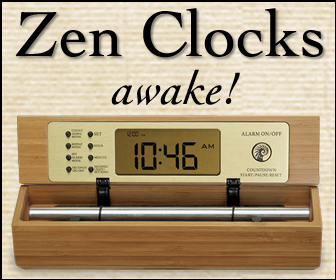 It's exquisite sounds summon your consciousness out of your meditative state with a series of subtle gongs.
Although meditation can be done in almost any context, practitioners usually employ a quiet, tranquil space, a meditation cushion or bench, and some kind of timing device to time the meditation session. Ideally, the more these accoutrements can be integrated the better. Thus, it is conducive to a satisfying meditation practice to have a timer or clock that is tranquil and beautiful. Using a kitchen timer or beeper watch is less than ideal. And it was with these considerations in mind that we designed our digital Zen Alarm Clock and practice timer. This unique “Zen Clock” features a long-resonating acoustic chime that brings the meditation session to a gradual close, preserving the environment of stillness while also acting as an effective time signal. The Digital Zen Clock can be programmed to chime at the end of the meditation session or periodically throughout the session as a kind of sonic yantra. The beauty and functionality of the Zen Clock/Timer makes it a meditation tool that can actually help you “make time” for meditation in your life.
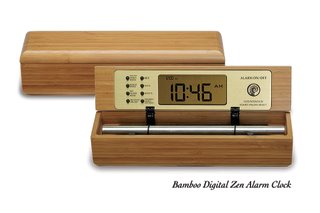 Our Yoga Timer & Clock can be programmed to chime at the end of the meditation or yoga session or periodically throughout the session as a kind of sonic yantra. The beauty and functionality of the Zen Clock/Timer makes it a meditation tool that can actually help you "make time" for meditation in your life. Bring yourself back to balance.
Now & Zen – The Meditation Timer Shop
1638 Pearl Street
Boulder, CO 80302
(800) 779-6383
Orders@now-zen.com
Posted in Bamboo Chime Clocks, Meditation Timers, Meditation Tools, mindfulness practice
 Hugs are Good For Your Heart Here’s some heart-healthy advice: Plan quality time with your honey.
In a 2003 study, researchers from the University of North Carolina told couples they would have to give speeches. But first, 100 of the couples sat together for 10 minutes, holding hands, then they embraced for 20 seconds. Another 85 couples rested quietly, separated from their partners.
During their speeches, heart rates and systolic blood pressure (the first number) rose twice as high in the no-contact group as it did for the hand-holding group.
“More intense and prolonged blood pressure responses to the stresses and strains of daily life create greater wear and tear on the body,” says study coauthor Karen Grewen, PhD. “Repeated episodes of positive contact and feelings of closeness may reduce the negative effects of life’s inevitable hassles on bodily systems.”
adapted from Prevention by By Kelly Stratton
 Waking up in the morning should be as pleasant as falling asleep at night. The Zen Alarm Clock's gradual, gentle awakening is transformative. Boulder, Colorado—an innovative company has taken one of life’s most unpleasant experiences (being startled awake by your alarm clock early Monday morning), and transformed it into something to actually look forward to. “The Zen Alarm Clock,” uses soothing acoustic chimes that awaken users gently and gradually, making waking up a real pleasure.
Rather than an artificial recorded sound played through a speaker, the Zen Clock features an alloy chime bar similar to a wind chime. When the clock’s alarm is triggered, its chime produces a long-resonating, beautiful acoustic tone reminiscent of a temple gong. Then, as the ring tone gradually fades away, the clock remains silent until it automatically strikes again three minutes later. The frequency of the chime strikes gradually increase over ten-minutes, eventually striking every five seconds, so they are guaranteed to wake up even the heaviest sleeper. This gentle, ten-minute “progressive awakening” leaves users feeling less groggy, and even helps with dream recall.
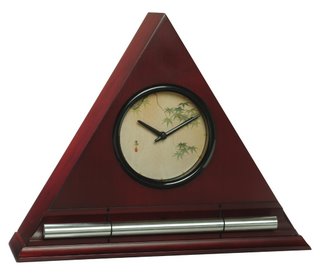 The Zen Alarm Clock transforms mornings, awakening you gradually with a series of gentle acoustic chimes Once you use a Zen Clock nothing else will do The Zen Alarm Clock transforms mornings, awakening you gradually with a series of gentle acoustic chimes Once you use a Zen Clock nothing else will do Now & Zen – The Gentle Sounding Alarm Clock Store
1638 Pearl Street
Boulder, CO 80302
(800) 779-6383
orders@now-zen.com
Posted in Meditation Timers, Meditation Tools, mindfulness practice
 The beauty and functionality of the Zen Clock/Timer makes it a meditation tool that can actually help you "make time" for meditation in your life. Bring yourself back to balance. Simple Strategies to Strengthen Self Control
Witness the role of willpower in your daily life: From the moment the alarm sounds in the morning, it’s only by sheer determination that you rouse yourself from the warm sheets into the still-dark morning. You grit your teeth when the barista takes 6 minutes to fill your coffee order–never mind those $200 shoes you talk yourself out of buying or the fries you force yourself to leave on your plate at lunch. It’s no wonder that by the time 6 pm rolls around, you’re waging World War III on your husband for forgetting to pick up the milk on his way home. Again.
Our lives are full of temptations that tax our self-control and drain our willpower, but a new and growing body of research says you can make it through the day without losing your cool–and it isn’t as hard as you think. First, you need to realize that doing anything you don’t want to do–suppressing irritation at your mother-in-law, fighting an impulse to do something you shouldn’t, completing a task when you want to quit–draws on the same storehouse of willpower. But help is here: According to Roy Baumeister, PhD, director of social psychology at Florida State University, willpower functions like a muscle. It can be fatigued by overuse, but it can also be strengthened to make you more productive, less stressed, and happier. All you need are a few healthy habits to keep your willpower tank on full.
 Our Yoga Timer & Clock can be programmed to chime at the end of the meditation or yoga session or periodically throughout the session as a kind of sonic yantra. When Dr. Baumeister monitored workers in Germany, he was surprised to find that people spent between 3 and 4 hours per day resisting desires, the most common of which were urges to eat, sleep, take a break from work, and have sex. But Dr. Baumeister also found that people with strong self-control spent less time resisting desires than other people did. At first he was puzzled. If self-control is for resisting desires, why are people who have more of it using it less? Soon the explanation emerged: They’re better at proactively arranging their lives to avoid problem situations. These are the folks who take the car to the shop before it breaks down, give themselves enough time to finish a project, and steer clear of all-you-can-eat buffets. They play offense instead of defense–which means they set themselves up so they have a realistic chance of succeeding.
“Mindfulness” is the spiritual practice of being aware of your present moment. World famous Zen monk Thich Nhat Hanh has developed the use of a bowl-gong in a practice he calls the “mindfulness bell.” When you hear the sound of the mindfulness bell, you are invited to take a moment to breathe in and out and center yourself in the present. This practice allows the sound of the bowl-gong to periodically connect you to the peace and tranquility that resides inside you right now. This delightful practice reduces stress and improves your overall health.
The Zen Timepiece can serve as a mindfulness bell in two ways: it can be set to strike on the hour (providing an hourly moment of stillness), or it can be set to strike at a programmed interval, such as every 20 minutes, or even every three hours.
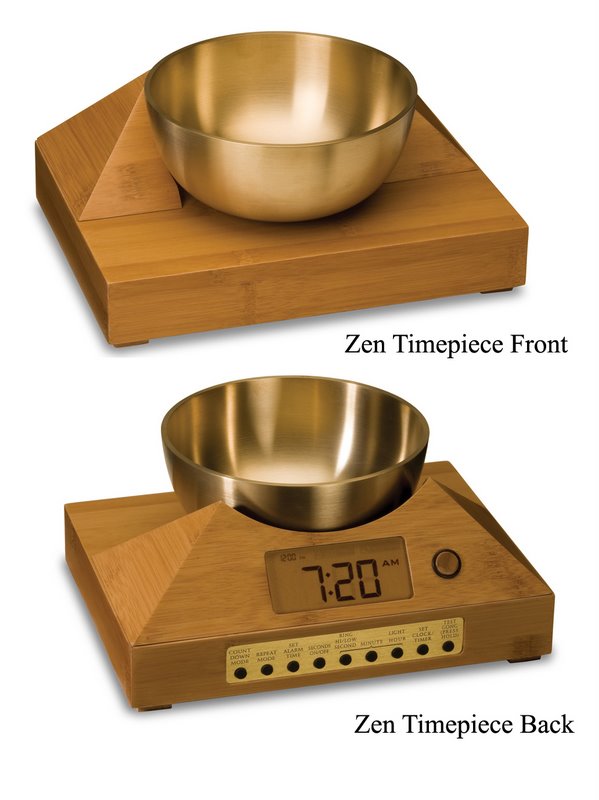 The beauty and functionality of the Zen Clock/Timer makes it a meditation tool that can actually help you "make time" for meditation in your life. Bring yourself back to balance. Now & Zen – The Gong Meditation and Alarm Clock Shop
1638 Pearl Street
Boulder, CO 80302
(800) 779-6383
orders@now-zen.com
Posted in Meditation Timers, Meditation Tools, mindfulness practice
 The beauty and functionality of the Zen Clock/Timer makes it a meditation tool that can actually help you "make time" for meditation in your life. Bring yourself back to balance. Featured Question
I have trouble sitting still and meditating. Are there other ways to get the same relaxation benefits?
Answer
Please don’t give up on meditation! What you’re experiencing is very common. Fortunately, I have some tricks to help you stick with it so you can reap all the benefits of meditation, from reducing stress to lowering your blood pressure.
First, find a comfortable position so that you’re less likely to fidget. It’s not written in stone that you must sit cross-legged–sitting in a chair may make meditation much easier. If yoga poses or walking helps you concentrate, go ahead.
Next, focus on breathing. At first, simply observe each inhalation and exhalation without trying to influence them: Whenever you notice your attention wandering, refocus on your breath.
Once you master this exercise, try counting breaths. Count “1” to yourself as you exhale, then “2” on your next exhale, and so on, until you reach “5.” Then start over again at “1.” Start with 5 minutes and work up to 20 to 30 minutes a day. Or try practicing with a mantra–a syllable, word, or phrase (such as shalom, breathe, or peace) that you repeat either silently or aloud while meditating. This ancient spiritual practice can help focus scattered thoughts and clear your mind. Many people repeat their mantra silently throughout the day.
 Our Yoga Timer & Clock can be programmed to chime at the end of the meditation or yoga session or periodically throughout the session as a kind of sonic yantra.
Source: Andrew Weil, MD, clinical professor of medicine at the University of Arizona and director of its Program in Integrative Medicine.
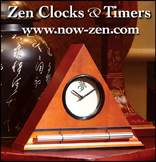 The beauty and functionality of the Zen Clock/Timer makes it a meditation tool that can actually help you "make time" for meditation in your life. Now & Zen – The Meditation Timer Shop
1638 Pearl Street
Boulder, CO 80302
(800) 779-6383
orders@now-zen.com
 Once you experience the Zen Timepiece's progressive tones, you'll never want to meditate any other way.
Posted in Meditation Timers, Meditation Tools, mindfulness practice
 meditation Science has proven that meditating actually restructures your brain and can train it to concentrate, feel greater compassion, cope with stress, and more. Read the latest research and put it into practice.
Yoga citta vritti nirodhah. Yoga is the ending of disturbances of the mind. (Yoga Sutra, I.2)
Nothing is quite as satisfying as a yoga practice that’s filled with movement. Whether you prefer an intense and sweaty vinyasa practice, a gentle but deliberate Viniyoga practice, or something in between, all systems of hatha yoga provide a contented afterglow for the same reason: You sync your movement with your breath. When you do, your mind stops its obsessive churning and begins to slow down. Your attention turns from your endless to-do list toward the rhythm of your breath, and you feel more peaceful than you did before you began your practice.
For many of us, accessing that same settled, contented state is more difficult to do in meditation. It’s not easy to watch the mind reveal its worries, its self-criticism, or its old memories. Meditation requires patience and—even more challenging for most Westerners—time. So, why would you put yourself through the struggle?
Quite simply, meditation can profoundly alter your experience of life. Thousands of years ago the sage Patanjali, who compiled the Yoga Sutra, and the Buddha both promised that meditation could eliminate the suffering caused by an untamed mind. They taught their students to cultivate focused attention, compassion, and joy. And they believed that it was possible to change one’s mental powers and emotional patterns by regularly experiencing meditative states. Those are hefty promises.
But these days, you don’t have to take their word for it. Western scien-tists are testing the wisdom of the masters, using new technology that allows researchers to study how meditation in-fluences the brain.
The current findings are exciting enough to encourage even the most resistant yogis to sit down on the cushion: They suggest that meditation—even in small doses—can profoundly influence your experience of the world by remodeling the physical structure of your brain.
Our Zen Timepiece’s acoustic 6-inch brass bowl-gong clock is the world’s ultimate alarm clock, practice timer, and “mindfulness bell.”
It fills your environment with beautifully complex tones whenever it strikes. In the morning, its exquisite sounds summon your consciousness into awakening with a series of subtle gongs that provide an elegant beginning to your day. Once you experience the Zen Timepiece’s progressive awakening, you’ll never want to wake up any other way. It also serves as the perfect meditation timer.
adapted from Yoga Journal, By Kelly McGonigal
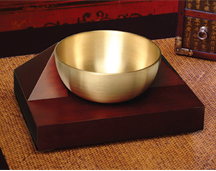 Meditation Timers with Tibetan-Singing Bowls Now & Zen
1638 Pearl Street
Boulder, CO 80302
(800) 779-6383
Posted in Bamboo Chime Clocks, Chime Alarm Clocks, intention, Meditation Timers, Meditation Tools, mindfulness practice, Now & Zen Alarm Clocks, Zen Timers
 Having a refreshed mind and body are two keys to a natural and Zen lifestyle. Do you believe you can feel better every single day—even in hard times? Dr. Andrew Weil says you can, but how will surprise you.
If you’ve ever wanted to be happier than you are, you’re obviously not alone. But Andrew Weil, MD, the founder and director of the Arizona Center for Integrative Medicine at the University of Arizona, is here to gently suggest that we might be going about it all wrong. Ever since he graduated from Harvard Medical School in 1968, Dr. Weil has been sounding the alarm about the wrongheadedness of the diagnose-and-drug model of health care. And now, with his new book, Spontaneous Happiness, he’s fixing his gaze on what makes us truly happy, what to do when we’re not, and how to better weather life’s inevitable highs and lows. He says we can all feel better—much better—than we do.
There’s an unspoken message in our society that we should all be happy all the time, and people are making themselves miserable trying to achieve it.
I don’t think that happiness or depression is a mood we should be in all or even most of the time. Most of us look for happiness “out there,” which renders it out of our control. The truth is, extremely negative and positive moods, like bliss and despondency, mark the edges of our emotional spectrum. They can help us discover a neutral midpoint of emotional health.
 Now & Zen is focused on creating a naturalistic lifestyle, and our clocks are an example of our philosophy. And what is that midpoint exactly?
It’s contentment, which is an internal state of well-being that’s relatively impervious to life’s transient ups and downs, and it’s independent of what you have or don’t have. If you hitch your moods to something external–getting a raise, a new car, a new lover–then what happens if that goes away? Contentment, on the other hand, is an inner feeling of calm; it’s not dependent on external circumstances, possessions, or an episode of good fortune.
So how do we foster contentment?
A good place to start is with a journal where you write down what you’re grateful for and then express thanks to key people in your life. Regularly practicing this sort of thinking is one of the best strategies for enhancing a sense of well-being. You should also try some form of meditation and deep breathing–which is free, and it’s right under your nose! Breathing mindfully helps calm our nervous system—it’s an easy, powerful tool.
But let’s say you work two jobs, your parents are sick, your kids are struggling in school—how can you find time to do this?
I understand it’s difficult, but breathing exercises literally take five minutes a day; sitting down quietly and meditating on your life takes just a few minutes too.
adapted from Prevention by By Siobhan O’Connor
Use our unique “Zen Clock” which functions as a Yoga & Meditation Timer. It features a long-resonating acoustic chime that brings your meditation or yoga session to a gradual close, preserving the environment of stillness while also acting as an effective time signal. Our Yoga Timer & Clock can be programmed to chime at the end of the meditation or yoga session or periodically throughout the session as a kind of sonic yantra. The beauty and functionality of the Zen Clock/Timer makes it a meditation tool that can actually help you “make time” for meditation in your life. Bring yourself back to balance.
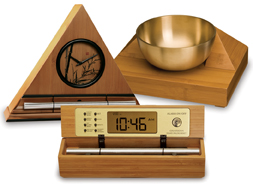 The beauty and functionality of the Zen Clock/Timer makes it a meditation tool that can actually help you "make time" for meditation in your life. Bring yourself back to balance. Now & Zen – The Yoga & Meditation Timer Store
1638 Pearl Street
Boulder, CO 80302
(800) 779-6383
orders@now-zen.com
Posted in Meditation Timers, Meditation Tools, mindfulness practice
 Once you experience the Zen Timepiece's progressive tones, you'll never want to meditate any other way. It serves as the perfect meditation timer. It’s not what you believe in; it’s that you believe that makes a difference
Spiritual or religious beliefs can be a potent stress reducer. And it doesn’t seem to matter what you believe in, according to Dr. Esther Sternberg, director of the Integrative Neural Immune Program and chief of the Neuroendocrine Immunology and Behavior section at the National Institute of Mental Health.
God, yoga, prayer, gardening or your pet, she says an interview in the June issue of Science & Theology News, can all trigger physiological processes that de-stress you. In other words, it’s not what you believe, but that you believe in something, that positively affects your immune system and helps you get and stay well.
Sternberg says that she came to recognize the importance of beliefs when she and her mother discussed them as her mother was dying. The issue arose again when she developed arthritis following her mother’s death.
“I’ve certainly seen in the last decade a huge shift,” she said, “a sea change, where all these kinds of notions–first that stress makes you sick and more recently that believing could make you well–are accepted now that there is a biology to it.”
 The beauty and functionality of the Zen Clock/Timer makes it a meditation tool that can actually help you "make time" for meditation in your life. Bring yourself back to balance. adapted from Prevention by By Jan Eickmeier
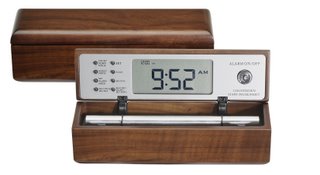 Use our unique "Zen Clock" which functions as a Yoga Timer. It features a long-resonating acoustic chime that brings your meditation or yoga session to a gradual close, preserving the environment of stillness while also acting as an effective time signal. Digital Zen Alarm Clock Meditation Timer
Meditation is generally an inwardly oriented, personal practice, which individuals do by themselves. Meditation may involve invoking or cultivating a feeling or internal state, such as compassion, or attending to a specific focal point. The term can refer to the state itself, as well as to practices or techniques employed to cultivate the state. There are dozens of specific styles of meditation practice; the word meditation may carry different meanings in different contexts. Meditation has been practiced since antiquity as a component of numerous religious traditions. A 2007 study by the U.S. government found that nearly 9.4% of U.S. adults (over 20 million) had practiced meditation within the past 12 months, up from 7.6% (more than 15 million people) in 2002.
Although meditation can be done in almost any context, practitioners usually employ a quiet, tranquil space, a meditation cushion or bench, and some kind of timing device to time the meditation session. Ideally, the more these accoutrements can be integrated the better. Thus, it is conducive to a satisfying meditation practice to have a timer or clock that is tranquil and beautiful. Using a kitchen timer or beeper watch is less than ideal. And it was with these considerations in mind that we designed our digital Zen Alarm Clock and practice timer. This unique “Zen Clock” features a long-resonating acoustic chime that brings the meditation session to a gradual close, preserving the environment of stillness while also acting as an effective time signal. The Digital Zen Clock can be programmed to chime at the end of the meditation session or periodically throughout the session as a kind of sonic yantra. The beauty and functionality of the Zen Clock/Timer makes it a meditation tool that can actually help you “make time” for meditation in your life.
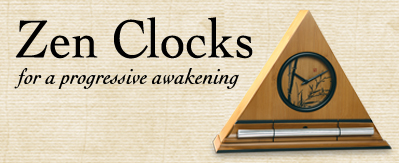 It serves as the perfect meditation timer. Available in 5 wood styles, including bamboo. Now & Zen – The Yoga & Meditation Timer Store
1638 Pearl Street
Boulder, CO 80302
(800) 779-6383
orders@now-zen.com
Posted in Meditation Timers, Meditation Tools, mindfulness practice
 The beauty and functionality of the Zen Clock/Timer makes it a meditation tool that can actually help you "make time" for meditation in your life. Calm your mind with focus and breathing
Meditation instructor Jim Malloy of St. Petersburg, FL, offers this easy-to-do meditation technique that only requires you to do it once a day for 5 minutes. (It works even better if you give it 20 minutes, twice a day.)
Find a quiet, comfortable place, where you won’t be distracted. Sit with your back straight. Place your hands in a comfortable position. If you please, you can call on God or a “higher power” to help you. Allow your eyes to rest comfortably downward, gazing softly but not focused on anything. Let your breathing become deep and rhythmic. It’s okay to let your attention drift a bit, but stay relaxed. If your eyes become heavy, let them close. Don’t worry about doing it right. You simply want to clear your head, and relax.
Use our unique “Zen Clock” which functions as a Yoga & Meditation Timer. It features a long-resonating acoustic chime that brings your meditation or yoga session to a gradual close, preserving the environment of stillness while also acting as an effective time signal. Our Yoga Timer & Clock can be programmed to chime at the end of the meditation or yoga session or periodically throughout the session as a kind of sonic yantra. The beauty and functionality of the Zen Clock/Timer makes it a meditation tool that can actually help you “make time” for meditation in your life. Bring yourself back to balance.
adapted from Prevention by By Selene Yeager
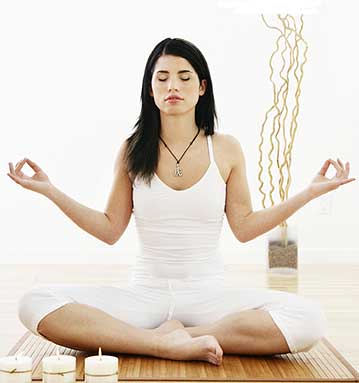 The beauty and functionality of the Zen Clock/Timer makes it a meditation tool that can actually help you "make time" for meditation in your life. 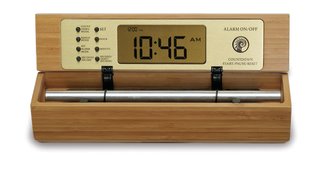 The beauty and functionality of the Zen Clock/Timer makes it a meditation tool that can actually help you "make time" for meditation in your life. Bring yourself back to balance. Now & Zen
The Yoga & Meditation Timer Shop
1638 Pearl Street
Boulder, CO 80302
(800) 779-6383
orders@now-zen.com
Posted in Bamboo Chime Clocks, Meditation Timers, Meditation Tools, mindfulness practice
 It's exquisite sounds summon your consciousness out of your meditative state with a series of subtle gongs. Once you experience the Zen Timepiece's progressive tones, you'll never want to meditate any other way. It serves as the perfect meditation timer. Kiyonaga Torii, Bonsai Vendor It’s easy to see the good in others if that’s what you decide to do
I believe that in the same way physical exercise can change your body, regular mental exercises can change how you see and engage with the world and the people you love.
Last September, I attended a meditation workshop. The meditation was this: Sit for 11 minutes with your hands in front of your heart, palms facing each other a few inches apart. We were to see the person we loved inside the space between our hands. We were to think of them happy, to see them bathed in light, to see them as their best selves. We were given a little song to sing during the meditation, but the song wasn’t the point. The point was to see the person you loved as happy for 11 minutes every day.
It was a 40-day meditation, and if you missed a day, you had to start over at day one. So every day I sat down and thought about my husband as happy. I pictured him on a boat or sleeping with our dog or laughing on the phone with his mother. We had a good marriage to start with, and now the small traces of impatience or judgment I had brought to our relationship fell away. I no longer cared if he neglected to unroll his socks before dropping them in the wash. I felt a heightened sense of joy when he came home from work. Again and again I pictured him at his best, and I responded to that best self accordingly. I remembered how grateful I was to be married to him, and then I remembered how grateful I was to even know him. The more goodness I saw in him, the more goodness he showed me. He even started going to the gym, feeling better about work, doing more to help other people. He asked me often about the meditation, and thanked me for it.
At the end of 40 days, I asked the teacher if people ever decided to push on. She told me that 40 days requested a change, 80 days formed a new pattern, and 120 days sealed your intention. I pressed ahead. It’s easy enough to find fault with people, but it’s equally easy to see their radiance if that’s what you decide to do. I didn’t change my husband, I changed myself, and in doing that I opened my eyes to what had been there all along.
Although meditation can be done in almost any context, practitioners usually employ a quiet, tranquil space, a meditation cushion or bench, and some kind of timing device to time the meditation session. Ideally, the more these accoutrements can be integrated the better. Thus, it is conducive to a satisfying meditation practice to have a timer or clock that is tranquil and beautiful. Using a kitchen timer or beeper watch is less than ideal.
 The beauty and functionality of the Zen Clock/Timer makes it a meditation tool that can actually help you "make time" for meditation in your life. Bring yourself back to balance.
And it was with these considerations in mind that we designed our digital Zen Alarm Clock and practice timer. This unique “Zen Clock” features a long-resonating acoustic chime that brings the meditation session to a gradual close, preserving the environment of stillness while also acting as an effective time signal. The Digital Zen Clock can be programmed to chime at the end of the meditation session or periodically throughout the session as a kind of sonic yantra.
adapted from Prevention by By Ann Patchett
Now & Zen – The Meditation Timer Store – Clocks & Timers with Gentle Sounds
1638 Pearl Street
Boulder, CO 80302
(800) 779-6383
orders@now-zen.com
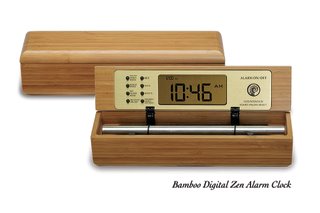 It features a long-resonating acoustic chime that brings your meditation or yoga session to a gradual close, preserving the environment of stillness while also acting as an effective time signal.
Posted in Meditation Timers, Meditation Tools, mindfulness practice
 Once you experience the Zen Timepiece's progressive tones, you'll never want to meditate any other way. It serves as the perfect meditation timer. When you focus on new details in everyday activities and encounters, you’re much more engaged, are viewed as more genuine, and, consequently, are more attractive to others. In a study by Ellen Langer, PhD, a Harvard psychologist and author of The Power of Mindful Learning, participants were asked to sell magazines either mindfully or mindlessly. Everyone memorized a sales pitch so they could recite it by rote. One group was asked to repeat the pitch verbatim with each new customer (i.e., mindlessly); the other group was told to change the script in subtle ways, such as pausing in different places (i.e., mindfully), so that only they knew how it differed each time. When the customers were asked their opinions of the salespeople, they judged the script changers (the mindful group) as more charismatic, says Langer.
A recent study from the University of North Carolina-Chapel Hill found that mindfulness techniques improve personal relationships as well. Couples who completed separate 8-week courses in traditional mindfulness-based techniques felt significantly more satisfied with their relationships than before; they also reported less stress within the relationship. These results were still in effect 3 months
later.
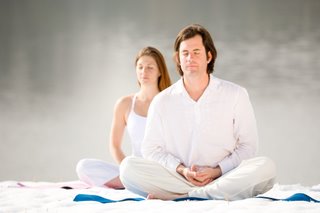 It's exquisite sounds summon your consciousness out of your meditative state with a series of subtle gongs. Try This Technique: Say Hello–Mindfully (10 minutes)
The next time you get together with good friends, make every effort to notice new details about them (what they’re wearing, the color of their eyes) and observe their physical reaction to you–and yours to them. Do you feel yourself retreating or opening toward the others? Do you sense they’re defensive, or eager to foster greater intimacy? Later, take a few moments to review what you’ve learned and how that new info has altered your perceptions of your friends.
Live in the Moment
Use our unique “Zen Clock” which functions as a Yoga & Meditation Timer. It features a long-resonating acoustic chime that brings your meditation or yoga session to a gradual close, preserving the environment of stillness while also acting as an effective time signal. Our Yoga Timer & Clock can be programmed to chime at the end of the meditation or yoga session or periodically throughout the session as a kind of sonic yantra. The beauty and functionality of the Zen Clock/Timer makes it a meditation tool that can actually help you “make time” for meditation in your life. Bring yourself back to balance.
adapted from Prevention by By Nicola Nieburg
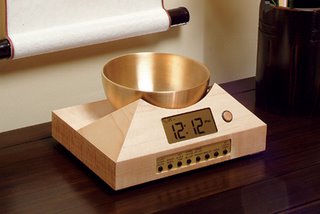 It serves as the perfect meditation timer. Available in 5 wood styles, including bamboo. Now & Zen – The Gong Meditation Timer & Clock Store
1638 Pearl Street
Boulder, CO 80302
(800) 779-6383
orders@now-zen.com
Posted in Meditation Timers, Meditation Tools, mindfulness practice
« Previous Page — « Previous Entries
Next Entries » — Next Page »
|
|
|
|